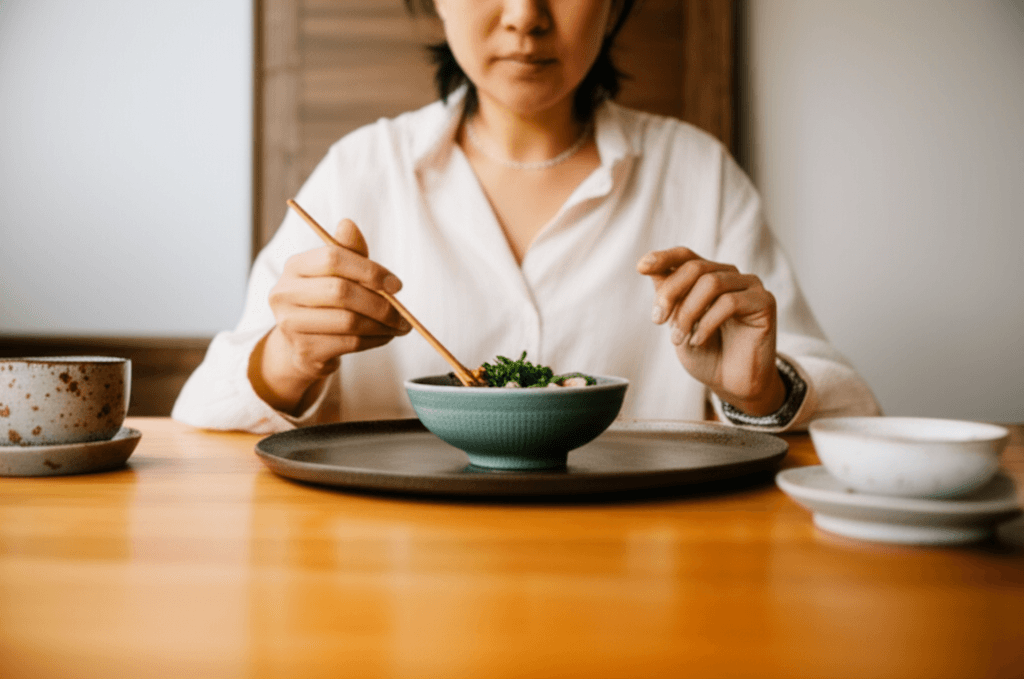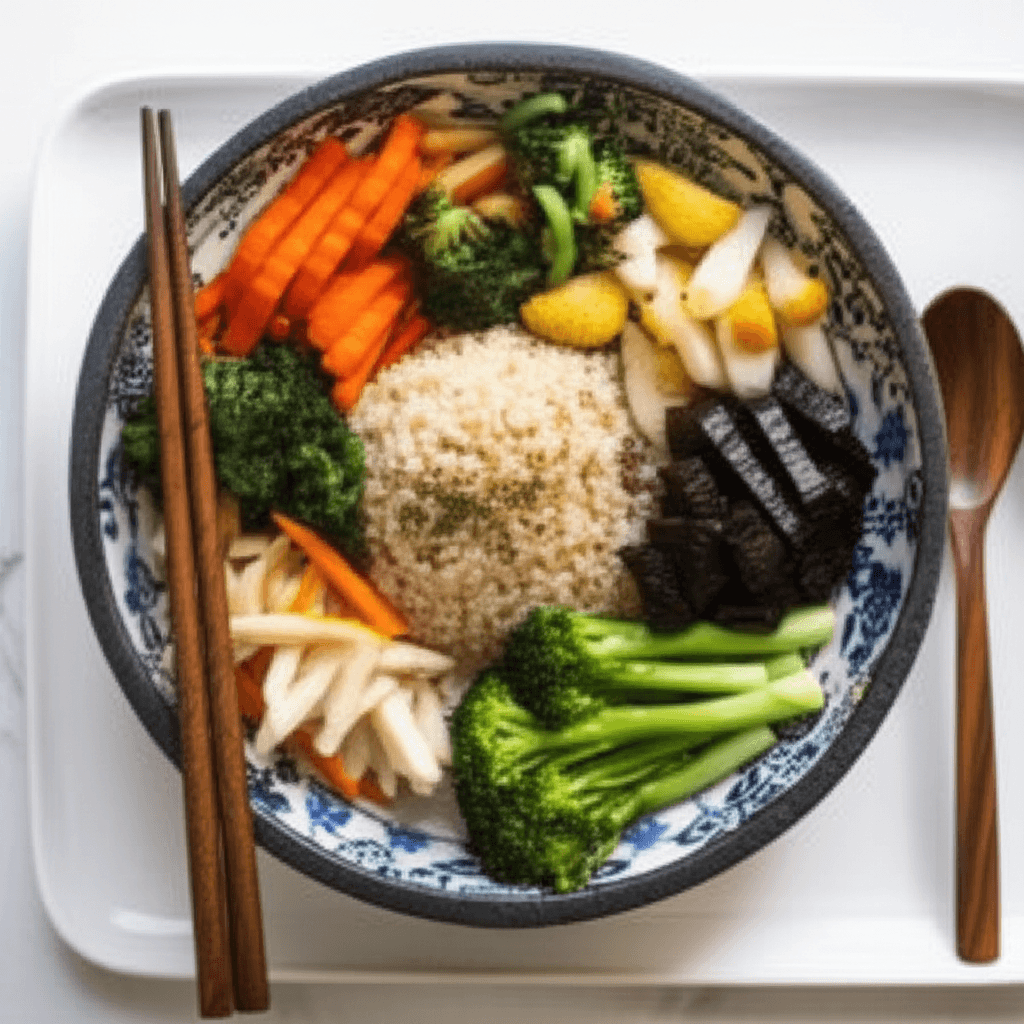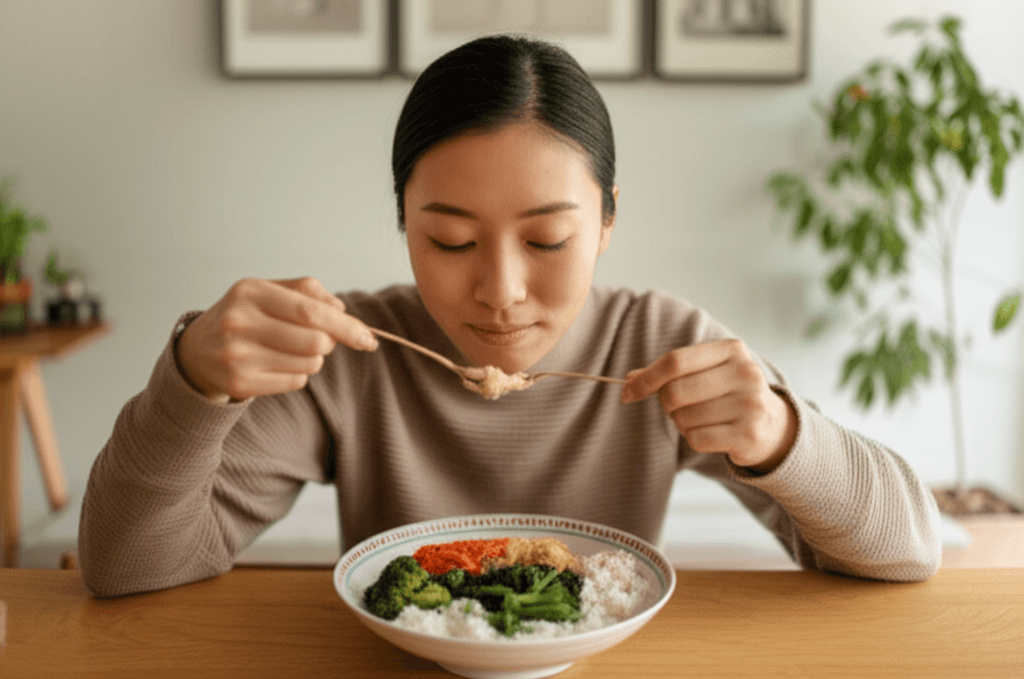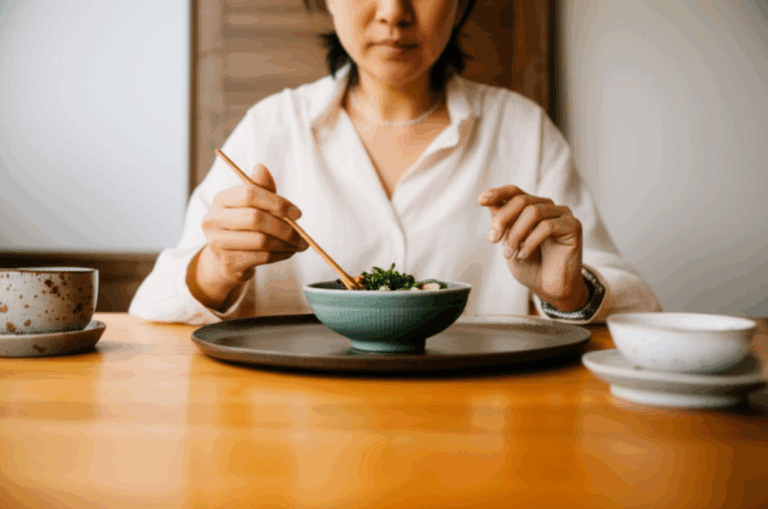In a world constantly seeking quick fixes for weight management, an ancient Japanese wisdom offers a sustainable path to mindful eating and a lean physique. Known as “Hara Hachi Bu,” this practice, which translates to “eat until you are 80% full,” is gaining traction, with fitness coaches highlighting its profound benefits for health and long-term leanness.
This centuries-old technique, deeply embedded in the culture of Okinawa, Japan—one of the world’s renowned “Blue Zones” where people live exceptionally long and healthy lives—encourages a conscious approach to nourishment rather than restrictive dieting. As fitness coach Lars Meidell explains, it’s about eating smarter, not less, and tuning into your body’s natural hunger cues.

Understanding Hara Hachi Bu: A Philosophy of Moderation
Hara Hachi Bu is not a diet in the conventional sense but a philosophical principle influencing how one approaches food. Originating from Confucian teachings and introduced by philosopher Ekiken Kaibara in 1713, it’s a simple yet powerful idea: stop eating when your stomach is approximately 80% full. This leaves a small, comfortable space, preventing the feeling of being overly stuffed.
The concept is a cornerstone of the Okinawan way of life, where elders often intone the phrase before meals as a mindful reminder. This cultural practice, coupled with a predominantly plant-based, nutrient-dense diet, is a significant factor in their remarkable longevity and low rates of chronic diseases.

The Pillars of Practicing Hara Hachi Bu for Mindful Eating
Embracing Hara Hachi Bu involves a series of deliberate eating habits that cultivate greater awareness during meals. It moves away from mindless consumption towards a more intuitive and satisfying experience.
Slow Down and Savor Each Bite
One of the most crucial aspects of Hara Hachi Bu is slowing down the eating process. Your brain takes about 20 minutes to register fullness signals from your stomach. By eating slowly, chewing food thoroughly, and even putting your fork down between bites, you allow your body sufficient time to communicate satiety, preventing inadvertent overeating.
Tune Into Your Body’s Hunger and Fullness Cues
Hara Hachi Bu encourages a deep connection with your body. It’s about learning to differentiate between physical hunger and emotional cravings. Midway through a meal, pause and consciously ask yourself: “Am I still truly hungry, or am I just eating out of habit or because the food is in front of me?” This self-awareness helps you stop before reaching 100% fullness.
Downsize Your Dinnerware and Portions
Visual cues significantly impact how much we eat. Larger plates can make normal portions appear smaller, leading us to serve and consume more. Using smaller plates and serving bowls can help manage portion sizes effectively without feeling deprived. Additionally, serving food in the kitchen and avoiding bringing extra to the table can reduce the temptation for seconds.
Minimize Distractions During Meals
Mindful eating requires focus. Eating in front of a TV, computer, or while scrolling on a phone can lead to mindless consumption, making it harder to recognize your body’s satiety signals. Creating a screen-free dining environment allows you to fully engage with the flavors, textures, and aromas of your food, enhancing enjoyment and promoting a healthier relationship with what you eat.

The Multifaceted Benefits: From Leanness to Longevity
The adoption of Hara Hachi Bu yields a multitude of health advantages, contributing to both a lean physique and overall well-being.
Sustainable Weight Management and Fat Loss
By consistently stopping at 80% fullness, individuals naturally reduce their calorie intake, a key factor in weight management without resorting to restrictive diets. This practice helps maintain a healthy weight and promotes fat loss sustainably.
Enhanced Digestive Health
Overeating puts a strain on the digestive system, leading to discomfort, bloating, acid reflux, and inefficient nutrient processing. Hara Hachi Bu supports optimal digestion by allowing the body to process food more efficiently, reducing the risk of gastrointestinal issues.
Cultivating a Healthier Relationship with Food
This mindful eating technique fosters a more positive and intentional relationship with food. It encourages enjoyment of meals without guilt, shifting the focus from calorie counting to appreciating the nourishment and sensory experience of eating. It can also help individuals differentiate between actual physical hunger and emotional eating triggers.
Longevity and Reduced Disease Risk
The Okinawans’ adherence to Hara Hachi Bu is strongly linked to their exceptional longevity and lower incidence of chronic diseases like heart disease, type 2 diabetes, and certain cancers. Moderate calorie restriction, a natural outcome of this practice, has been associated with extended lifespans and improved metabolic health. Studies suggest it may even promote healthier neurological markers in older individuals.

Implementing Hara Hachi Bu into Your Daily Life
Integrating this ancient Japanese wisdom into modern life is achievable with consistent effort. Fitness coaches, like Lars Meidell, advocate for these principles as a way to “eat smarter, not less.”
- Be Patient and Consistent: Shifting eating habits takes time. Start with small adjustments and gradually build awareness.
- Plan Balanced Meals: Focus on nutrient-dense foods, particularly plant-based options, that are naturally more filling.
- Hydrate Adequately: Sometimes thirst can be mistaken for hunger. Drink water throughout the day.
- Listen to Your Body’s Signals: Pay attention to how different foods make you feel, and adjust accordingly.
Hara Hachi Bu is more than just an eating guideline; it’s a holistic approach to living that promotes mindfulness, balance, and long-term health. By adopting this powerful Japanese technique, individuals can transform their relationship with food, manage their weight effectively, and embrace a path toward a healthier, leaner, and potentially longer life.







